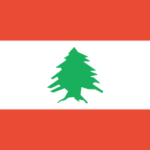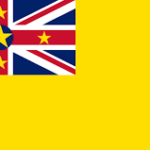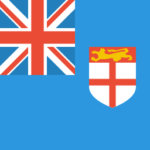Fees for registering Fiji trademarks
Service Process
Trademark registration time
The Republic of Fiji is a Pacific island nation located in the South Pacific, consisting of 332 islands. The current trademark regulations in Fiji are mainly based on the Trademark Law promulgated on July 25, 1933. The Intellectual Property Department of Fiji is responsible for managing trademark affairs, and the official languages are English, Fijian, and Hindi. Trademark exclusive rights need to be obtained through registration. Trademark registration is not mandatory, but in order to protect the trademark or renew it, it must be registered in accordance with the law. Fiji trademark registration adopts the principle of balancing "application first" and "use first". Fiji is a contracting party to international intellectual property treaties such as the WIPO Convention and the Rome Convention, and has not yet joined the Madrid System. Therefore, trademark registration can only be processed through "single country registration".
In addition, although Fiji became a member of the Commonwealth in 1987, due to the long-term impact of colonialism, its trademark applications can still be based on existing UK single country registration applications or on the country's 1933 Trademark Act.
Trademark Registration Process
(1) Based on the existing UK single country registration foundation application
Applications submitted based on existing UK registration foundations must be based on UK single country registration, and Madrid designated UK or EU applications cannot be considered valid foundations. We do not accept applications for service trademarks. If the applicant does not reside in Fiji, they must entrust a specialized agent in their home country to handle the matter. The basic materials required for trademark application are:
1. Trademark design;
2. The specific category and product items must have the same registration basis as in the UK;
3. The applicant's name and address must be the same as the registration basis in the UK;
4. Power of attorney;
5. Original registration certificate issued by the UK Intellectual Property Office;
6. Priority cannot be declared.
The main process for applying for registration of a Fiji trademark based on the existing UK single country registration foundation is: application acceptance formal examination approval issuance. The application will be accepted within 2-3 weeks after submission. The examiner will conduct a formal examination of the application. Formal review mainly examines whether the application requirements and classification information comply with regulations. There is no substantive examination and announcement system. If everything goes smoothly, it will take about 3 months to apply for registration based on the existing UK single country registration foundation.
The Fiji trademark is based on the existing UK registration and has the same validity period as the UK registration. It can be renewed within 6 months before the expiration date, with a grace period of 6 months. The renewal period is also the same as the UK registration.
(2) Submit an application based on the 1933 Trademark Law of the country
At present, Fiji adopts the old version of the British classification table, which has a total of 50 categories. It does not accept applications for service trademarks and accepts applications for multiple categories in one table. The elements that can be registered as trademarks in Fiji include: text, name, graphics, color combinations, slogan, etc. Non traditional trademarks such as sound, smell, etc. cannot be applied for registration temporarily.
If the applicant does not reside in Fiji, they must entrust a specialized agent in their home country to handle the matter. The basic materials required for trademark application are:
1. Trademark design;
2. Specific categories and product items;
3. Name and address of the applicant;
4. Power of attorney;
5. Explain whether the trademark is intended or actually used in Fiji;
6. Priority cannot be declared.
The main process for applying for registration of a Fiji trademark based on the country's trademark law is: application, acceptance, examination, announcement, approval, and issuance.
The application will be accepted within 2-3 weeks after submission. The examiner will conduct formal and substantive examinations on the application. Formal review mainly examines whether the application requirements and classification information comply with regulations; The substantive examination includes the examination of the distinctiveness of the trademark, whether it violates the prohibition and prohibition clauses, and whether it conflicts with the prior trademark. If the examination fails, a rejection notice will be issued and the applicant will be required to respond within the time limit specified in the rejection notice. If the substantive examination passes, it will be arranged for public announcement. Three months from the announcement date is the objection period, during which any interested party or prior rights holder may raise objections. The main reasons for raising objections are:
1. Conflict with prior trademarks, such as owning a prior registered trademark;
2. The trademark lacks distinctiveness;
3. The trademark has adverse effects;
4. Malicious registration;
5. Conflict with other prior rights, such as trade name rights, design rights, copyrights, personal names, etc.
If there are no objections or objections are not valid during the announcement period, registration can be approved and a registration certificate can be issued. If everything goes smoothly, registration under the country's Trademark Law will take 1-2 years; If things don't go smoothly and there are objections or rejections along the way, the time will be greatly extended, possibly taking 3-5 years. Fiji trademarks are valid for 14 years after registration under the country's Trademark Law, starting from the date of application; Renewal can be processed within 12 months before the expiration date, with a grace period of 6 months; The renewal period is 14 years.
Trademark registration materials
If a trademark is not actually used in the country for five consecutive years after registration, anyone may apply for revocation; Except for force majeure.
Start Your Trademark Business
Start Registration

do not understand? Contact us

do not understand? Contact us

do not understand? Contact us

do not understand? Contact us


 Fiji
Fiji